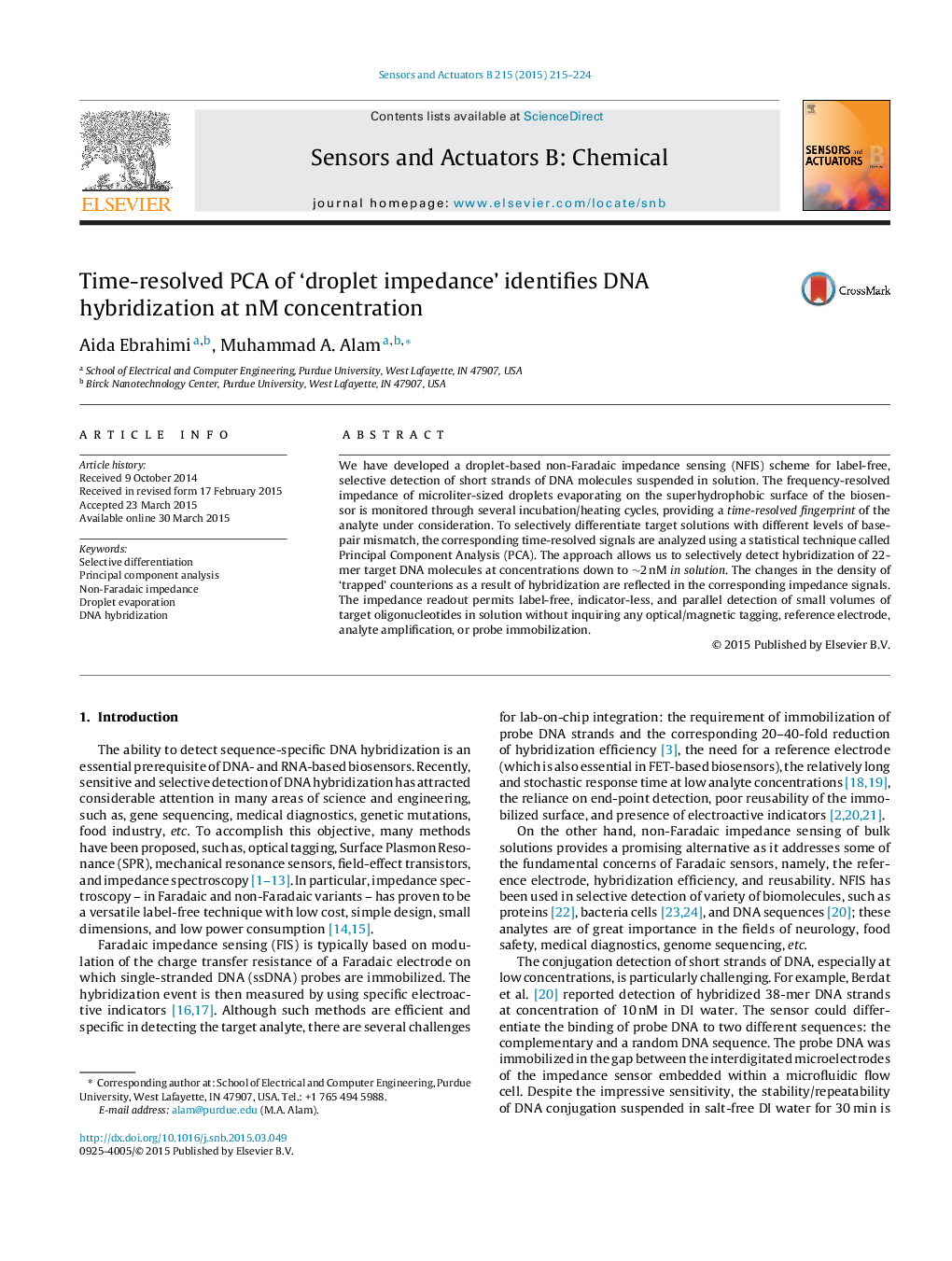| Article ID | Journal | Published Year | Pages | File Type |
|---|---|---|---|---|
| 7145813 | Sensors and Actuators B: Chemical | 2015 | 10 Pages |
Abstract
We have developed a droplet-based non-Faradaic impedance sensing (NFIS) scheme for label-free, selective detection of short strands of DNA molecules suspended in solution. The frequency-resolved impedance of microliter-sized droplets evaporating on the superhydrophobic surface of the biosensor is monitored through several incubation/heating cycles, providing a time-resolved fingerprint of the analyte under consideration. To selectively differentiate target solutions with different levels of base-pair mismatch, the corresponding time-resolved signals are analyzed using a statistical technique called Principal Component Analysis (PCA). The approach allows us to selectively detect hybridization of 22-mer target DNA molecules at concentrations down to â¼2Â nM in solution. The changes in the density of 'trapped' counterions as a result of hybridization are reflected in the corresponding impedance signals. The impedance readout permits label-free, indicator-less, and parallel detection of small volumes of target oligonucleotides in solution without inquiring any optical/magnetic tagging, reference electrode, analyte amplification, or probe immobilization.
Related Topics
Physical Sciences and Engineering
Chemistry
Analytical Chemistry
Authors
Aida Ebrahimi, Muhammad A. Alam,
